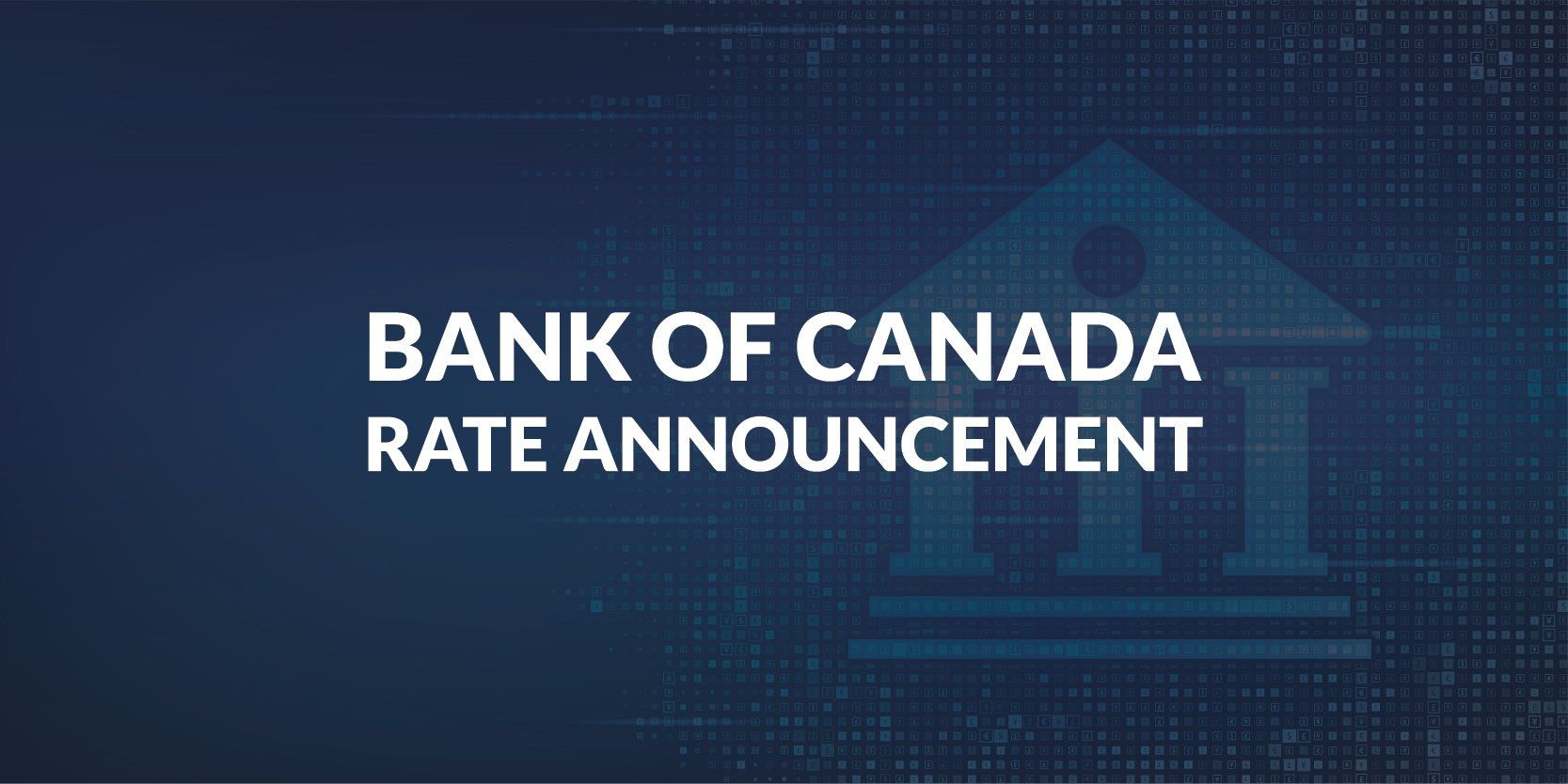Bank of Canada Rate Announcement Oct 27th, 2021
Bank of Canada maintains policy rate and forward guidance, ends quantitative easing.
The Bank of Canada today held its target for the overnight rate at the effective lower bound of ¼ percent, with the Bank Rate at ½ percent and the deposit rate at ¼ percent. The Bank’s extraordinary forward guidance on the path for the overnight rate is being maintained. The Bank is ending quantitative easing (QE) and moving into the reinvestment phase, during which it will purchase Government of Canada bonds solely to replace maturing bonds.
The global economic recovery from the COVID-19 pandemic is progressing. Vaccines are proving highly effective against the virus, although their availability and distribution globally remain uneven and COVID variants pose risks to health and economic activity. In the face of strong global demand for goods, pandemic-related disruptions to production and transportation are constraining growth. Inflation rates have increased in many countries, boosted by these supply bottlenecks and by higher energy prices. While bond yields have risen in recent weeks, financial conditions remain accommodative and continue to support economic activity.
The Bank projects global GDP will grow by 6½ percent in 2021 – a strong pace but less than projected in the July Monetary Policy Report (MPR) – and by 4¼ percent in 2022 and about 3½ percent in 2023.
In Canada, robust economic growth has resumed, following a pause in the second quarter. Strong employment gains in recent months were concentrated in hard-to-distance sectors and among workers most affected by lockdowns. This has significantly reduced the very uneven impact of the pandemic on workers. As the economy reopens, it is taking time for workers to find the right jobs and for employers to hire people with the right skills. This is contributing to labour shortages in certain sectors, even as slack remains in the overall labour market.
The Bank now forecasts Canada’s economy will grow by 5 percent this year before moderating to 4¼ percent in 2022 and 3¾ percent in 2023. Demand is expected to be supported by strong consumption and business investment, and a rebound in exports as the US economy continues to recover. Housing activity has moderated, but is expected to remain elevated. On the supply side, shortages of manufacturing inputs, transportation bottlenecks, and difficulties in matching jobs to workers are limiting the economy’s productive capacity. Although the impact and persistence of these supply factors are hard to quantify, the output gap is likely to be narrower than the Bank had forecast in July.
The recent increase in CPI inflation was anticipated in July, but the main forces pushing up prices – higher energy prices and pandemic-related supply bottlenecks – now appear to be stronger and more persistent than expected. Core measures of inflation have also risen, but by less than the CPI. The Bank now expects CPI inflation to be elevated into next year, and ease back to around the 2 percent target by late 2022. The Bank is closely watching inflation expectations and labour costs to ensure that the temporary forces pushing up prices do not become embedded in ongoing inflation.
The Governing Council judges that in view of ongoing excess capacity, the economy continues to require considerable monetary policy support. We remain committed to holding the policy interest rate at the effective lower bound until economic slack is absorbed so that the 2 percent inflation target is sustainably achieved. In the Bank’s projection, this happens sometime in the middle quarters of 2022. In light of the progress made in the economic recovery, the Governing Council has decided to end quantitative easing and keep its overall holdings of Government of Canada bonds roughly constant.
We will continue to provide the appropriate degree of monetary policy stimulus to support the recovery and achieve the inflation target.
Information notes
A market notice outlining details of the reinvestment phase will be published on the Bank’s web site at 10:30 am ET today.
The next scheduled date for announcing the overnight rate target is December 8, 2021. The next full update of the Bank’s outlook for the economy and inflation, including risks to the projection, will be published in the MPR on January 26, 2022.
Monetary Policy Report October 2021.
Katherine Martin
Origin Mortgages
Phone: 1-604-454-0843
Email: kmartin@planmymortgage.ca
Fax: 1-604-454-0842
RECENT POSTS






